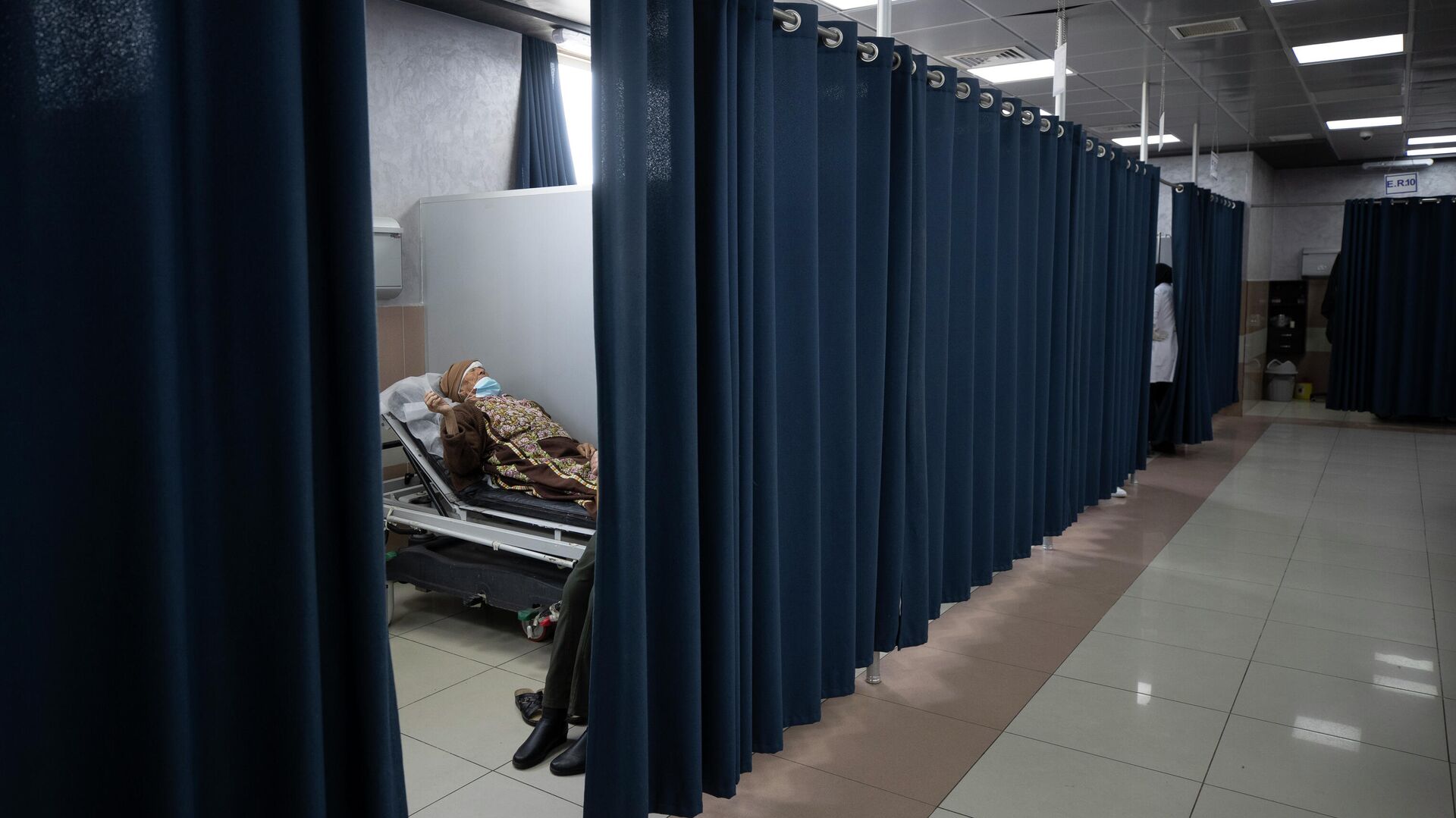Omicron is Under Control in the West Bank, But the Question is: For How Long?
08:35 GMT 12.01.2022 (Updated: 11:57 GMT 12.01.2022)

© AP Photo / Nasser Nasser
Subscribe
The Palestinian territories have so far registered nearly 300 cases of COVID-19's new variant. To contain its spread, authorities plan to step up the mass vaccination campaign and keep encouraging the masses to adhere to social distancing and personal hygiene.
In Israel, the Omicron variant of the coronavirus is still grabbing headlines, with more than 30,000 new daily cases registered on Tuesday.
Situation Less Alarming?
Meanwhile, in the neighbouring Palestinian territories, the situation seems to be less alarming, with local authorities reporting nearly 300 patients. Several of those cases have been registered in the Gaza Strip, although local authorities have struggled to provide a definite number.
Mahdy Rashid, an official in charge of the coronavirus file within the Palestinian Authority, believes the situation is still manageable. He, however, acknowledges that it could spiral out of control quickly, considering the nature of the strain, which is believed to be many times more contagious than the original virus.
"[To curb the wave] we oblige Palestinians to quarantine themselves at home for at least 21 days. In addition, we monitor all crossings and force all those, who return to the West Bank, to isolate themselves until they know their status..
In the past, the Palestinian Authority also applied a number of restrictive measures aimed at minimising the damage caused by the pandemic.
Public gatherings have been banned, private businesses and public institutions have been shut down and local authorities have even imposed a night curfew to prevent crowds from mingling.
Although this policy did the trick, the masses have been struggling to adhere to social distancing and other restrictions that have been put in place, something that eventually led to a surge in coronavirus cases.
Authorities were then hopeful that that surge would be blocked by a wide vaccination campaign. Over the past several months, the PA has received millions of doses of Russian, Chinese and American inoculations. Initially, the number of those who agreed to take the jabs was relatively low, with only 23 percent vaccinated in late August.
Then, when numbers continued to go up, local authorities stepped up their efforts in trying to convince the masses that taking the jab was the right way forward to stabilise the situation.
Rashid says those efforts have bore fruit.
"Now, about 70 percent of the people in the West Bank and Gaza are fully vaccinated. This was partially possible due to our mass vaccination campaign, and partially because we conditioned the provision of services at governmental institutions upon inoculation."
Can Crisis Be Averted?
The Palestinian official is certain that the PA has the ability to overcome the emerging wave of Omicron. However, if numbers continue to climb, local medical centres and hospitals might crumble under the pressure.
In 2020, when the first cases of coronavirus had just been discovered, it was reported that the West Bank and the coastal enclave lacked basic medical equipment. The per capita hospital bed ratio stands at 1.3 in the Palestinian territories, as compared to an average of 2.2 and 4.7 in Israel and the OECD countries, respectively.
A similar situation has also been observed in terms of medical staff. In the West Bank the average number of doctors stood at 1.45 per 1,000 people. For comparison's sake, in Israel the number is 3.1, whereas in the OECD it is 3.7.
The Gaza-based Hamas authorities have already voiced their concerns about the situation, saying they don't have "the ability to deal with the Omicron wave".
However, Rashid is still optimistic that the crisis can be averted, if the "public adheres to health instructions, keeps social distancing, wears masks and maintains personal hygiene".


